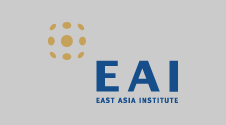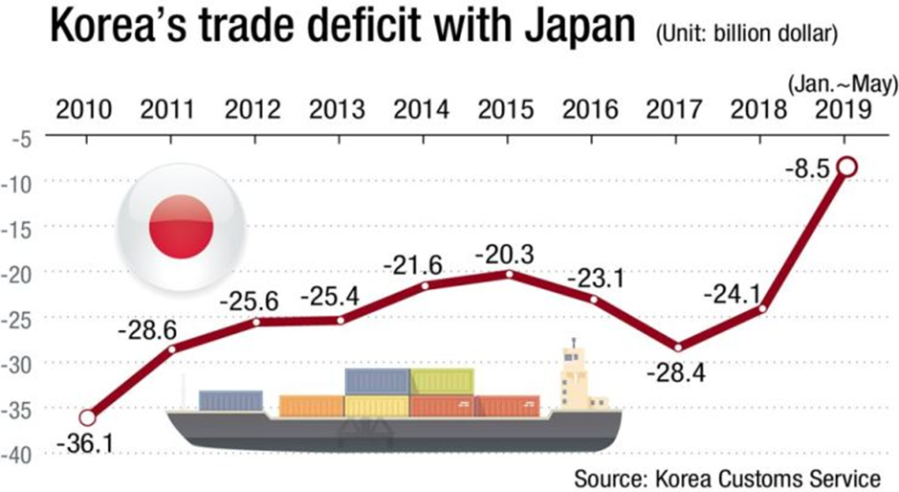
Dear Prime Minister Abe, Help, Not Fight, President Moon to Help you on North Korea and the Olympics
Commentary | July 29, 2019
Seong-Ho Sheen
A professor at Graduate School of International Studies at Seoul National University
The recent announcement that the Japanese government may impose export restrictions to South Korea has further soured bilateral relations, bringing them down to a record low. The news came as a surprise to South Korea, provided how Prime Minister Abe had reiterated the need for a “free and open economy” at the G20 Summit this past June. While Prime Minister Abe remains discontent about the latest developments in Japan-South Korean relations, he “needs to reconsider his trade war against South Korea.” According to Professor Seong-ho Sheen, it was President Moon who “sent his top envoy to Tokyo after the high profile Seoul-Pyongyang dialogue […] and the historic inter-Korean summit” and also “took a two-track approach […] to separate the history issue from other areas” unlike some of the past administrations. Professor Sheen suggests that the South Korean administration is still willing to work with Japan to improve bilateral relations, insofar as Prime Minister Abe reverses his decision.
Japan-ROK relations have reached their lowest point in years, if not decades, with the Japanese government’s announcement of possible export restriction of key materials used for Korea’s semiconductor and cell phone producers. The situation is so toxic that a new poll found that seventy four percent of Japanese does not trust South Korea. Meanwhile, the latest poll by Gallup Korea found that only twelve percent of South Koreans said they have a favorable view of Japan, the lowest figure since Japan-ROK relations polling began in 1991.
The situation is getting worse as the Japanese government is reportedly planning to remove South Korea from its white country list for favorable export permission for over hundreds of items. Meanwhile, there is a widespread boycott on Japanese products and travel among the Korean public as a government official alluded to a possible withdrawal from the General Security of Military Information Agreement (GSOMIA) between Korea and Japan.
Previously Mr. Abe rejected the Korean government’s request for a bilateral meeting with President Moon during the Osaka G20 summit even though he met with nineteen other leaders. The Japanese government’s decision came as a surprise amidst deepening social and economic exchanges between the two countries. For the past year alone, over 7.5 million Koreans visited Japan, a very close second to 8 million Chinese tourists while 2.5 million record breaking Japanese tourists visited Korea. Young Japanese people are in love with K-pop, K beauty and Korean foods, creating a new Korean wave in Japanese society. What has happened then between Tokyo and Seoul?
Obviously, Mr. Abe is not happy about the Moon government’s decision not to intervene in a Korean court ruling against Japanese companies over colonial era forced labor lawsuit brought by Korean citizens. The Japanese government strongly protested that the Korean government is not abiding by international law by ignoring the request for a third party mediation under the 1965 Korea-Japan normalization agreement which, they claim, resolved all the reparation issues once and for all. They suspect the Moon government is trying to overthrow the post-war settlement between Japan and South Korea. Last December, the Moon government dissolved a foundation established by the 2015 the comfort women settlement between President Park Geun-hye and Mr. Abe.
Yet, Mr. Abe needs to reconsider his trade war against South Korea. First of all, as many international media sources point out, Japan’s export restrictions contradict the principle of “a free and open economy.” Mr. Abe told leaders of the G20 nations in Osaka that Japan serves as “the foundation of global peace and prosperity.” Indeed, when asked about the rational for the sudden trade restrictions, the Japanese government contradicted itself, shifting back and forth between framing them as a history issue or a national security issue. Speaking of poor export controls system of South Korea, the Japanese officials had difficult time to provide concrete evidence.
In fact, many outsiders worry that the Japanese measure could disrupt the global trading system which is already under serious strain by the protectionist trade war between US and China. Lately, a prominent group of America’s largest tech companies issued a joint statement stating, “non-transparent and unilateral changes in export control policies can cause supply chain disruptions, delays in shipments, and ultimately long-term harm” to the global economy.
Furthermore, the Japanese trade restriction could cause serious damage not only to the South Korean economy but also to that of Japan as well. Since the 1965 normalization, Korea and Japan have built a very close and successful economic partnership to their mutual benefit. In particular, the trade balance has been largely in favor of Japan, as South Korea has never had a trade surplus with Japan over the past half century. In 2018 alone, Japan had over US$24 billion trade surplus with South Korea compared to Japan’s US$29.5 billion deficit with China. The cumulative trade surplus with Korea over those 54 years stands at US$604.6 billion. Experts point out that Tokyo will eventually shoot itself in the foot as Japanese producers worry about the risk of permanent loss in market share.

Some say the Japanese government is not happy about the way in which Seoul handles North Korea’s nuclear issues. They believe the Moon government is taking a mid-way approach between complete denuclearization and a nuclear freeze while trying to cement a peace treaty with North Korea with push for US-North Korea normalization. Security experts are worried that Mr. Trump will make a small deal with Kim Jong-un for a freeze of long range ballistic missile program while leaving Kim’s nuclear materials unaccounted for. It will leave Japan’s security interest in limbo as Pyongyang may retain a capability to attack Tokyo with medium range missiles tipped with nuclear warhead.
Yet, that is exactly why Mr. Abe should work with, and not fight with, Moon who faces the same North Korean threat as Japan. Mr. Abe should not forget that it was President Moon who sent his top envoy to Tokyo immediately after the high profile Seoul-Pyongyang dialogue to give back-briefing in the aftermath of Pyongchang Winter Olympic last year. He did so again right after the historic inter-Korean summit at Panmunjom last April as well. Each time, Mr. Abe gladly met with them.
Indeed, President Moon has made eleven phone calls and held four meetings with Abe in two years of his presidency, hoping for a mutual cooperation on various issues. The previous Park administration refused to meet Mr. Abe for three and half years due to the comfort women issue. From the beginning, Moon took a two-track approach of acknowledging difficult challenges of the history issues while emphasizing bilateral cooperation in other areas. It represented Moon’s desire to separate the history issue from other areas so that Korea-Japan could promote expanding cooperative partnership in the 21st century. Yet, the recent trade restriction takes exactly the opposite approach to intermingling history with all the other area of bilateral relations.
With a victory in the Japanese mid-term election, Mr. Abe should focus on the next big national event, the 2020 Tokyo Olympics. Even though Mr. Abe tends to advocate maximum pressure on Pyongyang for denuclearization, keeping a peace on the Korean Peninsula will be critical for Japan’s hosting of the world’s greatest sporting event. Another nuclear crisis from Pyongyang is the last thing Mr. Abe wants. Moon expressed support for Mr. Abe’s desire to engage with Pyongyang to resolve the abductee issue and pursue diplomatic normalization. Mr. Abe, please help, not fight, with President Moon, so he can help you on North Korea and the Olympics.
■ Seong-ho Sheen is also a member of Policy Advisory Board of Ministry of Defense, Republic of Korea.

What Trump Should Know After the Panmunjom Summit
Jihwan Hwang | 12.July.2019

Between Pyongyang, Beijing, Moscow, and Kim Jong Un
Chae-Yeon Kang | 26.June.2019

North Korea’s Missile Provocations: Not just a Gambit but an Imminent Threat
Won Gon Park | 07.June.2019
LIST